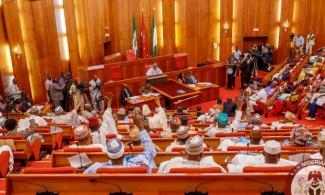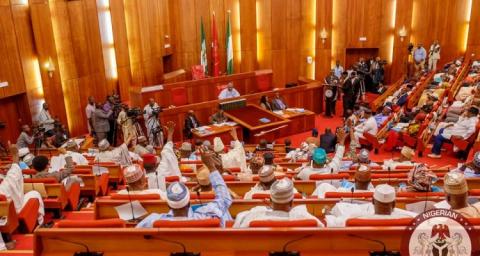
Analysts say the country has been losing money to International Oil Companies (IOCs) due to the way the contracts are structured. Each contract is due for review after 15 years. The agreements were signed in 1993, 2000 and 2005, which means review dates for two of the licenses have expired.

The Senate Committee on Petroleum (upstream) on Thursday asked the Group Managing Director of the Nigerian National Petroleum Corporation (NNPC), Mikanti Baru, to furnish it with details of oil prices and production levels for the last two years.
The Committee made the request during a a visit to the NNPC headquarters in Abuja.
A statement released by NNPC’s Group General Manager, Public Affairs, Mr. Ndu Ughamadu quoted Omotayo Alasoadura, Chairman of the committee, as saying: “We have just come to fulfill another part of our mandate, which is to oversee what NNPC is doing. It’s not a mission to harass anybody, it’s for us to understand one other, give advice, as nobody is a sole repository of knowledge.
"Everybody knows that Dr. Baru is very knowledgeable in the Industry, but he can’t know everything, even people who don’t know anything about the Industry may have useful ideas that can be of help.”
While receiving the senators, Baru told them he had obtained permission from President Muhammadu Buhari to review the terms of the Production Sharing Contracts Nigeria entered into with international oil companies.
Baru further disclosed that a committee set up for the purpose will soon swing into action.
He said interactions had been held with the oil companies on a project-by-project basis in the absence of a comprehensive review for the purpose.
Nigeria uses PSCs as the structure for regulating oil exploration in its offshore basin.
Analysts say the country has been losing money to International Oil Companies (IOCs) due to the way the contracts are structured.
Each contract is due for review after 15 years.
The agreements were signed in 1993, 2000 and 2005, which means review dates for two of the licenses have expired.
Baru also took out time to address claims that the corporation does not remit all its revenues from sale of crude oil to the government.
He said the allegations are popping up because of how NNPC operates: “While the process of audit and reconciliation of accounts is on, a lot of accusations of short payments and non-remittances are usually traded; we endeavour to keep our cool on these allegations because we know that we remit whatever is due to the Federation Account.”
Nigeria's budget estimates are based on assumptions of oil production level and price of the commodity.
With the recent passage of a budget that is N500billion more than that presented to it by the President, the National Assembly may need the data requested by the Senate Committee on Petroleum Upstream, to make a valid case if necessary.
The President sent a proposal of $45 per barrel with a daily oil production of 2.3 million.
The National Assembly retained the production level, but increased the estimated price of oil for the budget period to $50.5.